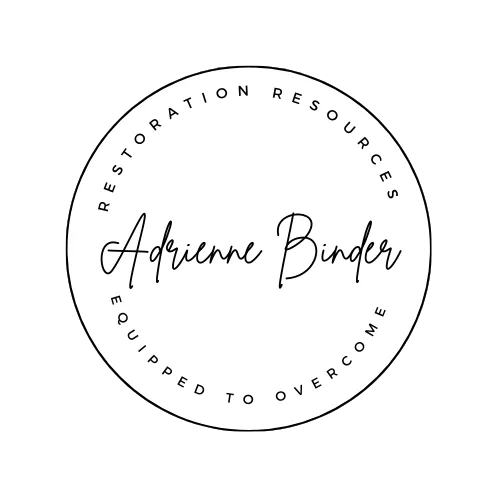Restoration Resources
Healing hearts. Equipping communities. Restoring hope.

Trauma-informed resources that support healing, identity, and renewal across generations and communities.
Our Mission
Restoration Resources exists to support healing, wholeness, and restoration for individuals, families, and communities through trauma-informed resources and creative experiences that foster truth, dignity, and renewal.
Ready to take the next step toward restoration?
MEET THE FOUNDER
Hello, I'm Adrienne
After witnessing how emotional and spiritual wounds ripple through individuals, families, and entire communities, I felt compelled to respond. What began as a deep concern for those carrying unseen pain has grown into a body of work devoted to healing at the intersection of truth, dignity, and human experience.
As an educator, practitioner, and doctoral researcher, my passion lies in creating spaces where healing can unfold with wisdom, compassion, and care. Through trauma-informed resources and creative experiences, I support individuals and communities in rebuilding identity, restoring trust, and cultivating environments that are safe, grounded, and life-giving.
My work is shaped by a faith-rooted understanding of restoration: one that honors the whole person and believes healing emerges where truth and grace are held together. Whether through education, creative engagement, or community partnerships, my hope is to offer pathways toward renewal that are accessible, humane, and deeply respectful of each person’s story.
Healing is sacred work. Together, we can foster communities where presence, integrity, and love create space for lasting restoration.

Programs
Practical, faith-based programs for survivors, students, and community leaders.
RESTORATION STUDIO
Trauma-informed creative experiences that support healing, presence, and restoration through gentle, choice-based art exploration.
RESTORED FOUNDATIONS
Faith-based curriculum to rebuild identity, heal patterns, and restore relationships with practical tools you can use today.
ROOTED:
THE NEXT GEN
A semester-ready curriculum that grounds students in identity, Scripture, and healthy community practices.
THE SAFE CHURCH PROJECT
A directory & training program to help churches prevent harm, respond wisely, and build trauma-informed ministries.
The Heart Behind Our Work:
Too many survivors are left unseen, too many communities are unsure how to help, and too many young people inherit unresolved pain. Restoration Resources exists to bridge that gap which brings faith-based wisdom, trauma-informed care, and hope for lasting transformation.
Who We Serve
Trauma Survivors
Find hope, healing, and restoration.
Community Leaders
Learn to recognize, respond, and lead safely.
Educators
Equip the next generation with strong spiritual and emotional foundations.
Restoration Changes Everything:
When individuals heal, hope begins to return to families and homes.
When communities are equipped with wisdom and care, safety and trust can grow again.
When the next generation is grounded in truth and dignity, the future is shaped with resilience and hope.
At Restoration Resources, we believe healing is sacred work. Our approach integrates timeless truth with trauma-informed care to support restoration, rebuild what has been broken, and create pathways toward wholeness for individuals, families, and communities.
Take Your Next Step
Whether you’re beginning your healing journey, seeking spaces that foster safety and wholeness, or guiding others toward lives rooted in truth and integrity... your next step toward restoration begins here.

“He heals the brokenhearted and binds up their wounds.” — Psalm 147:3

Healing hearts. Equipping communities. Restoring hope.
Copyrights 2025 | Restoration Resources™ | Terms & Conditions